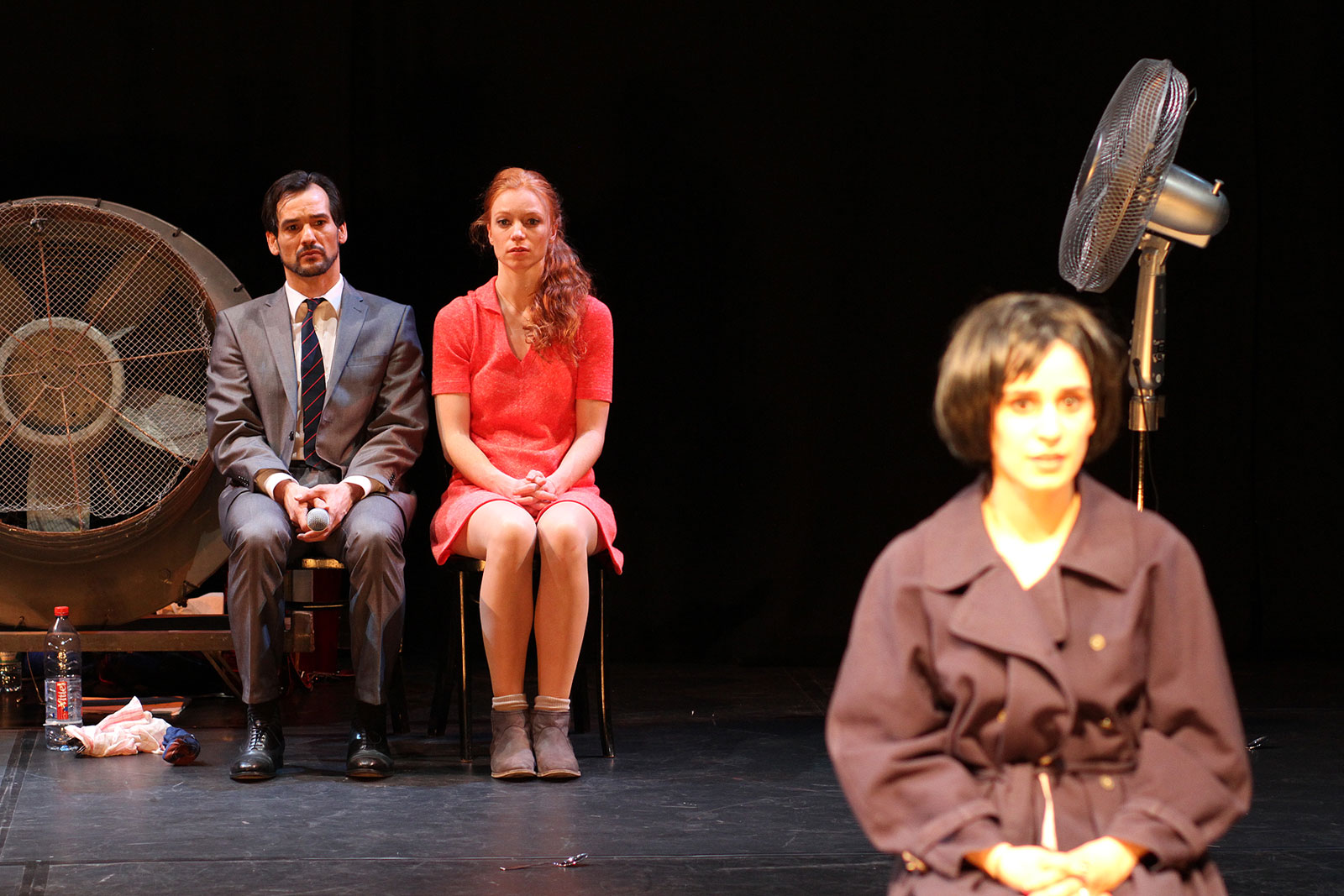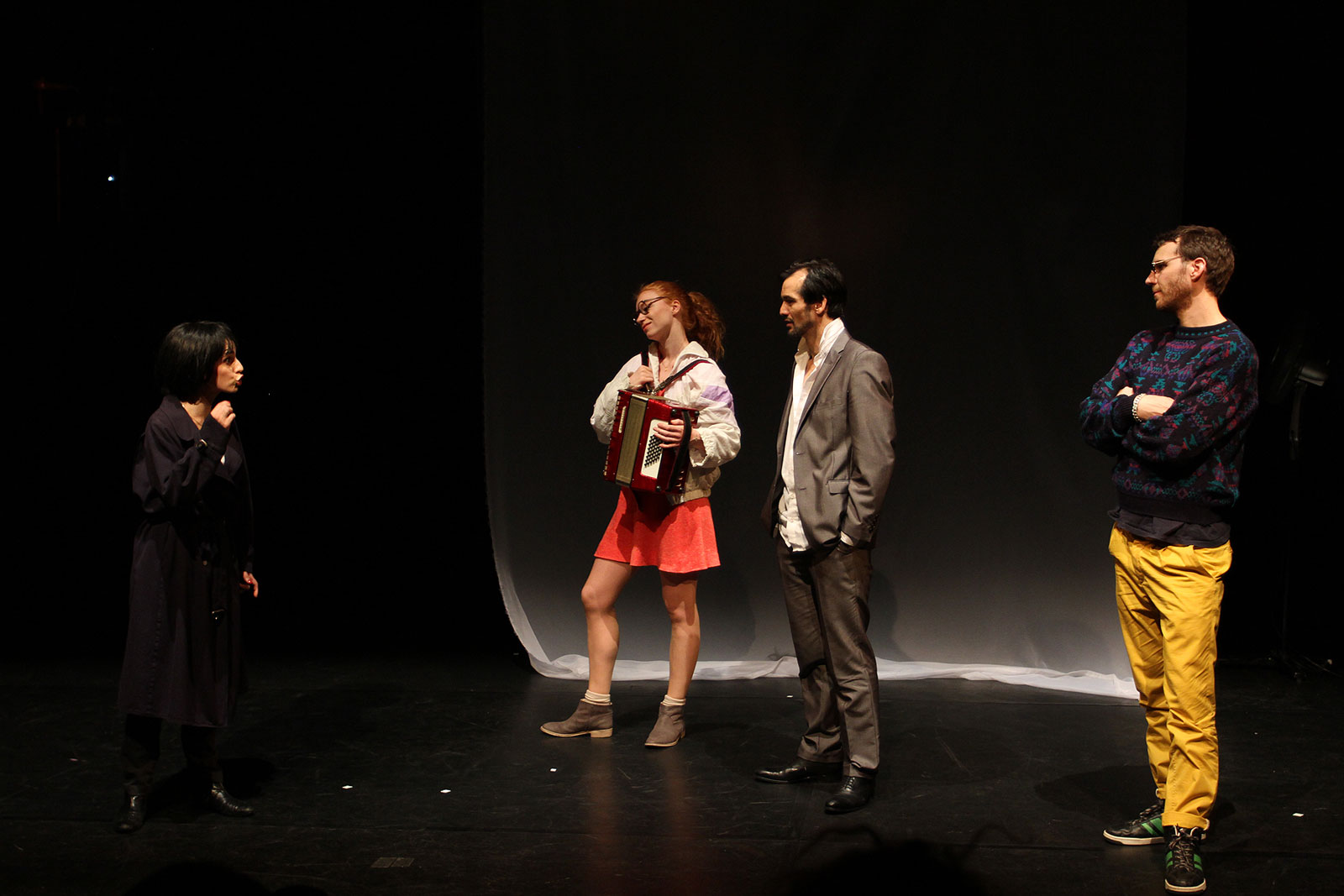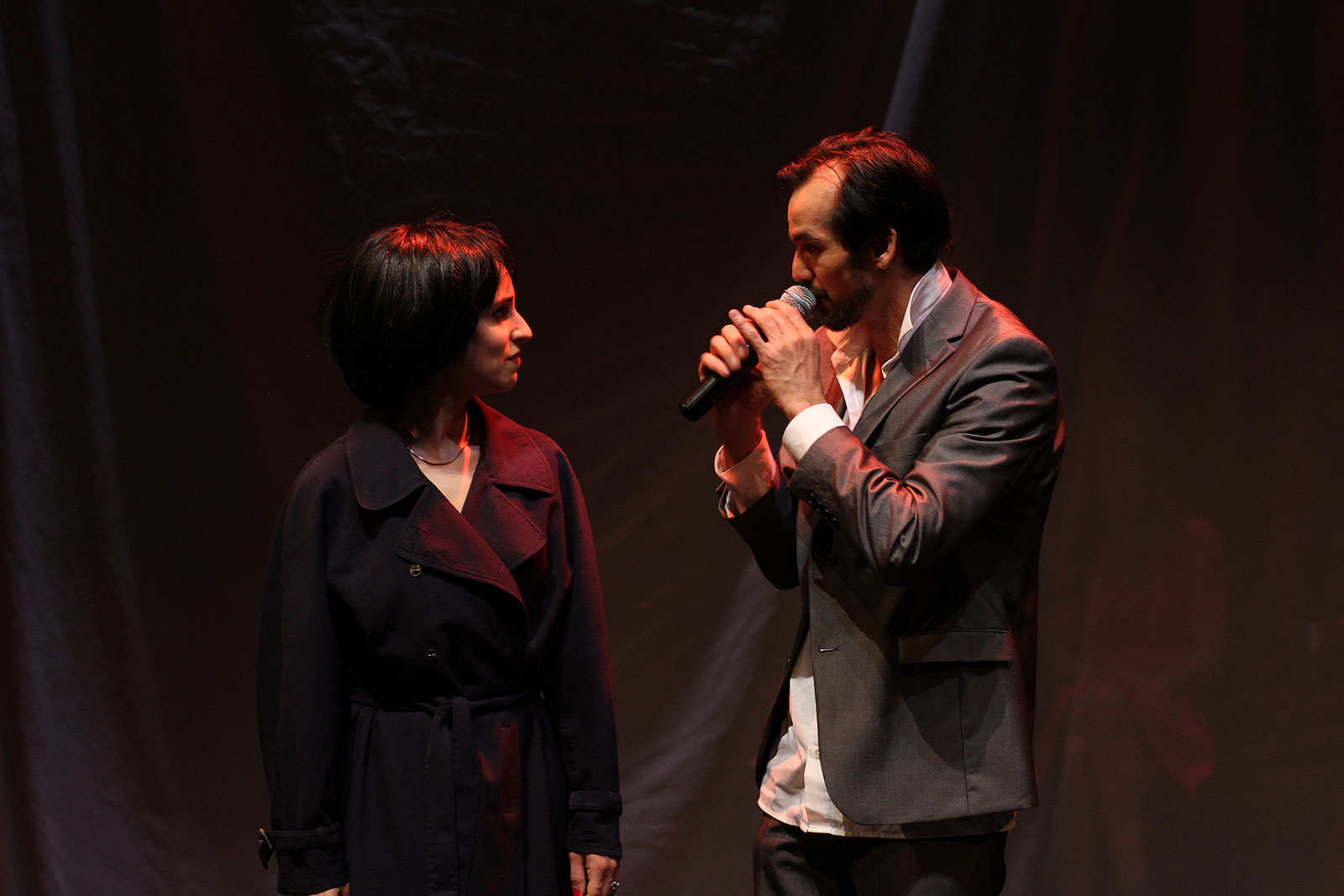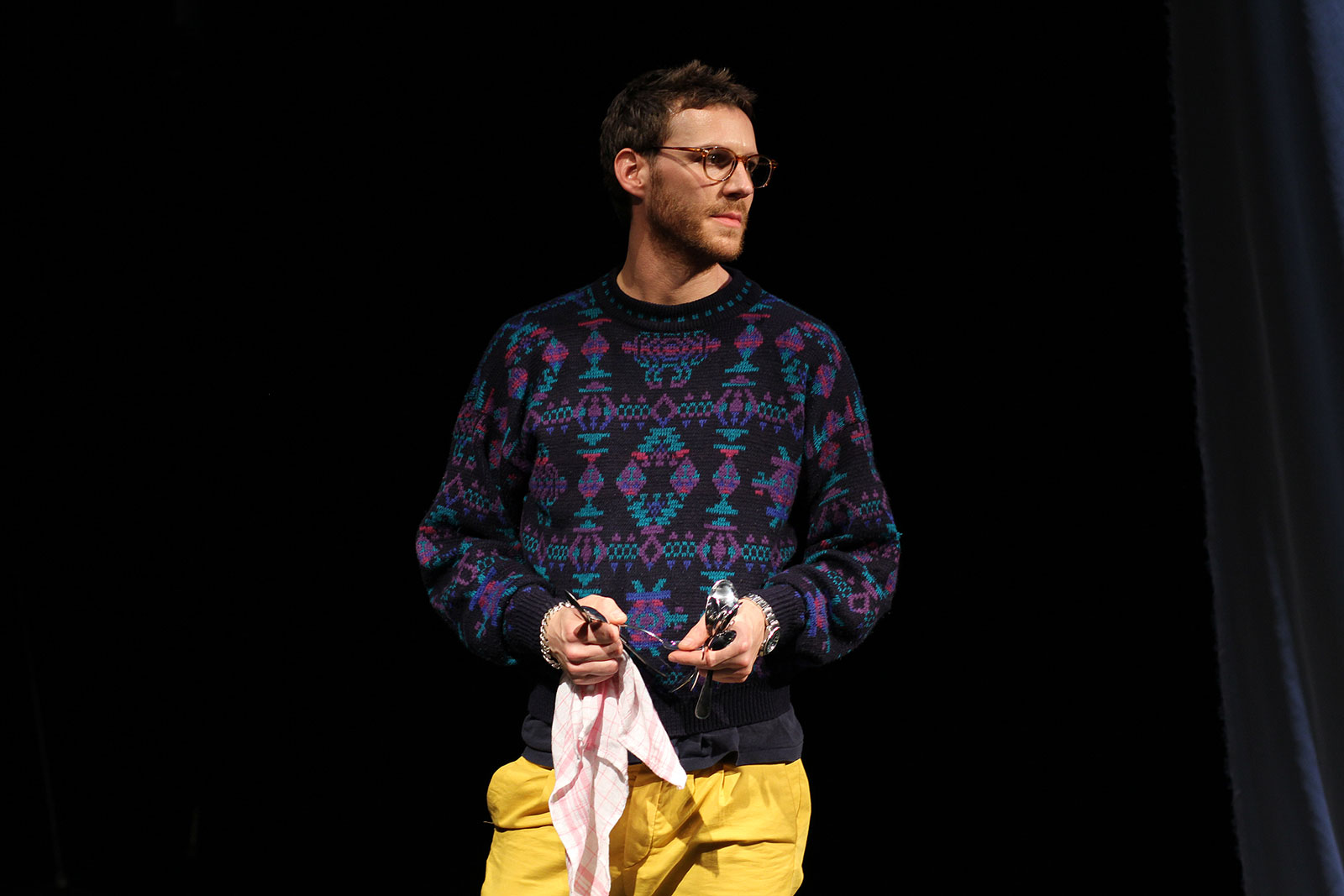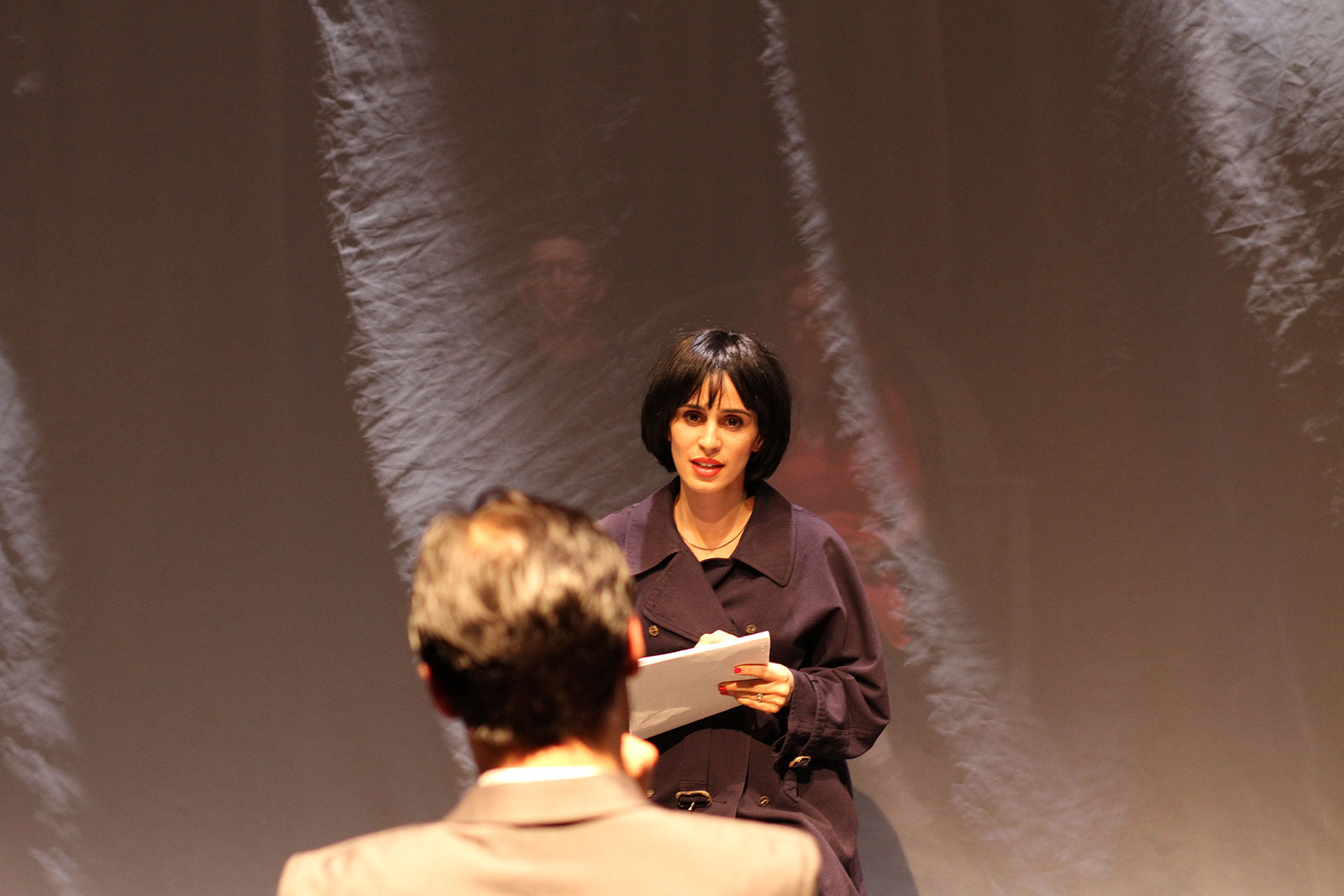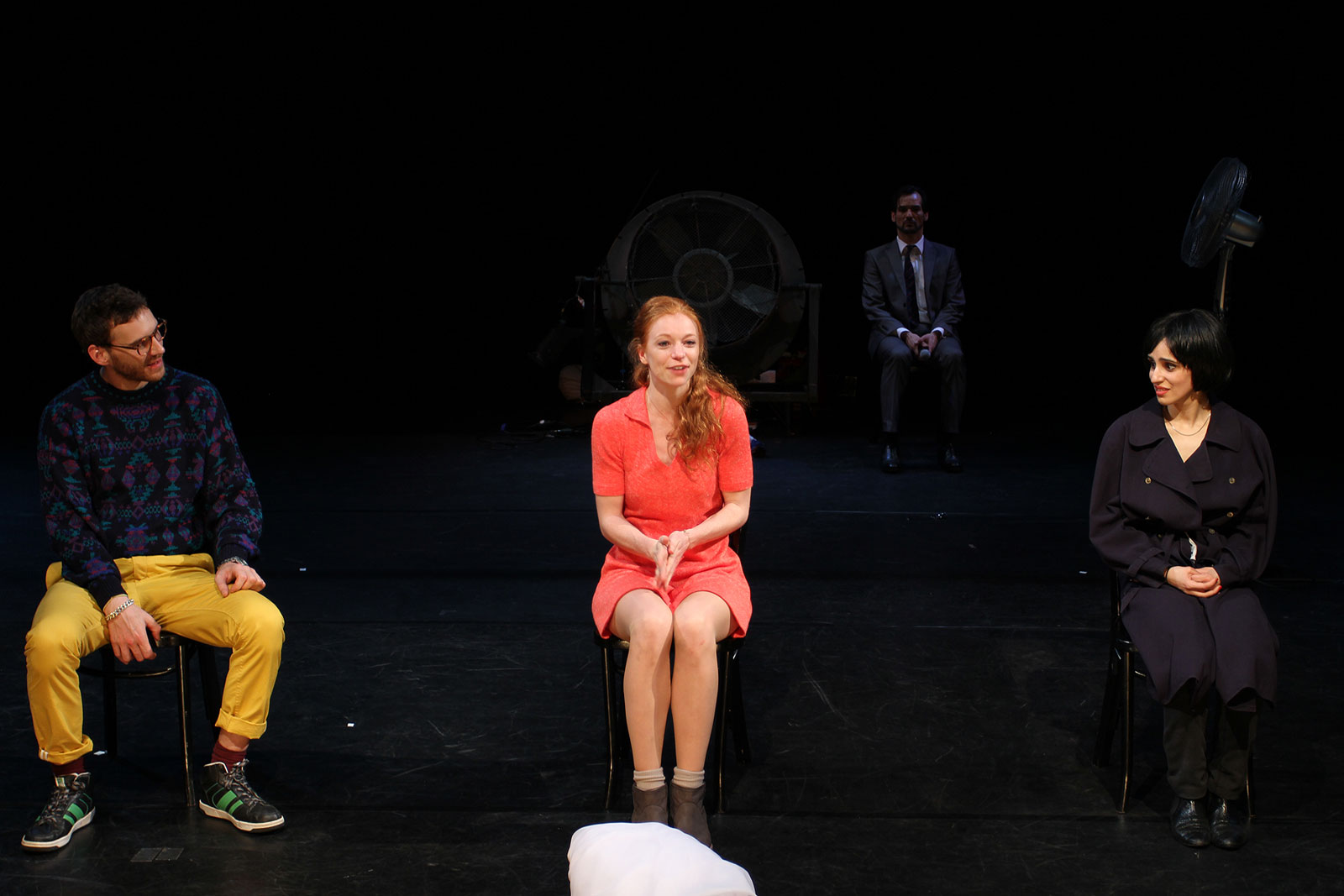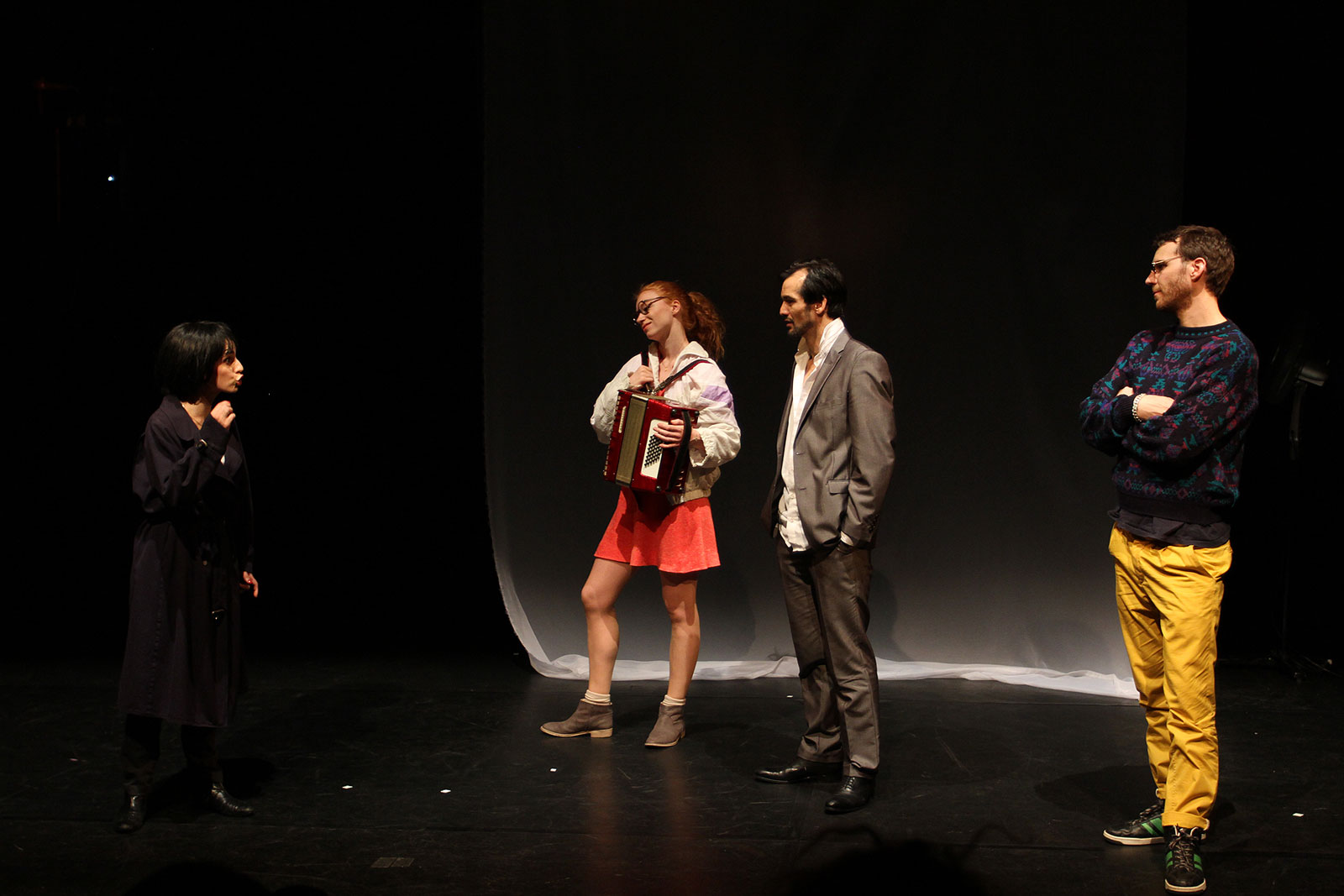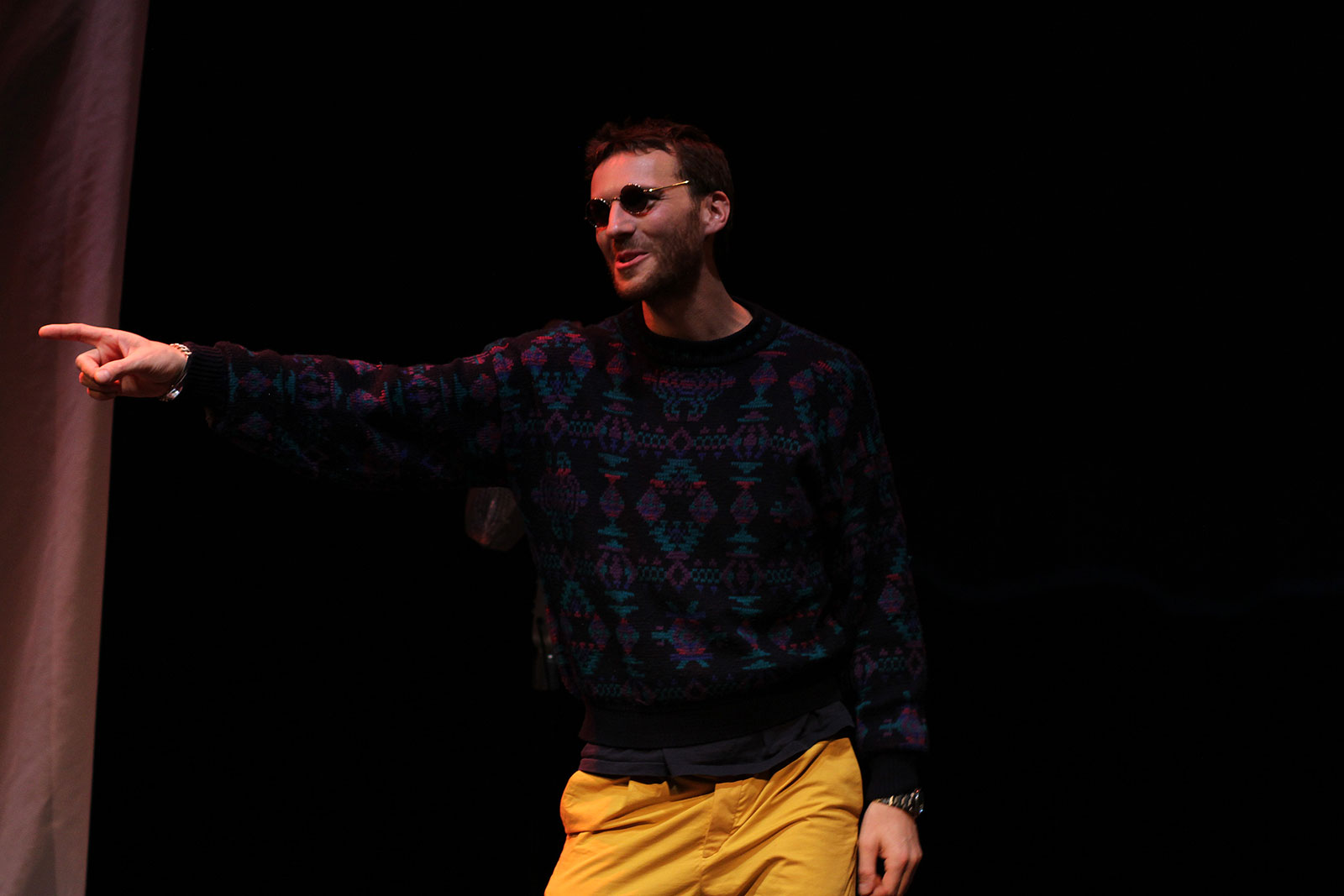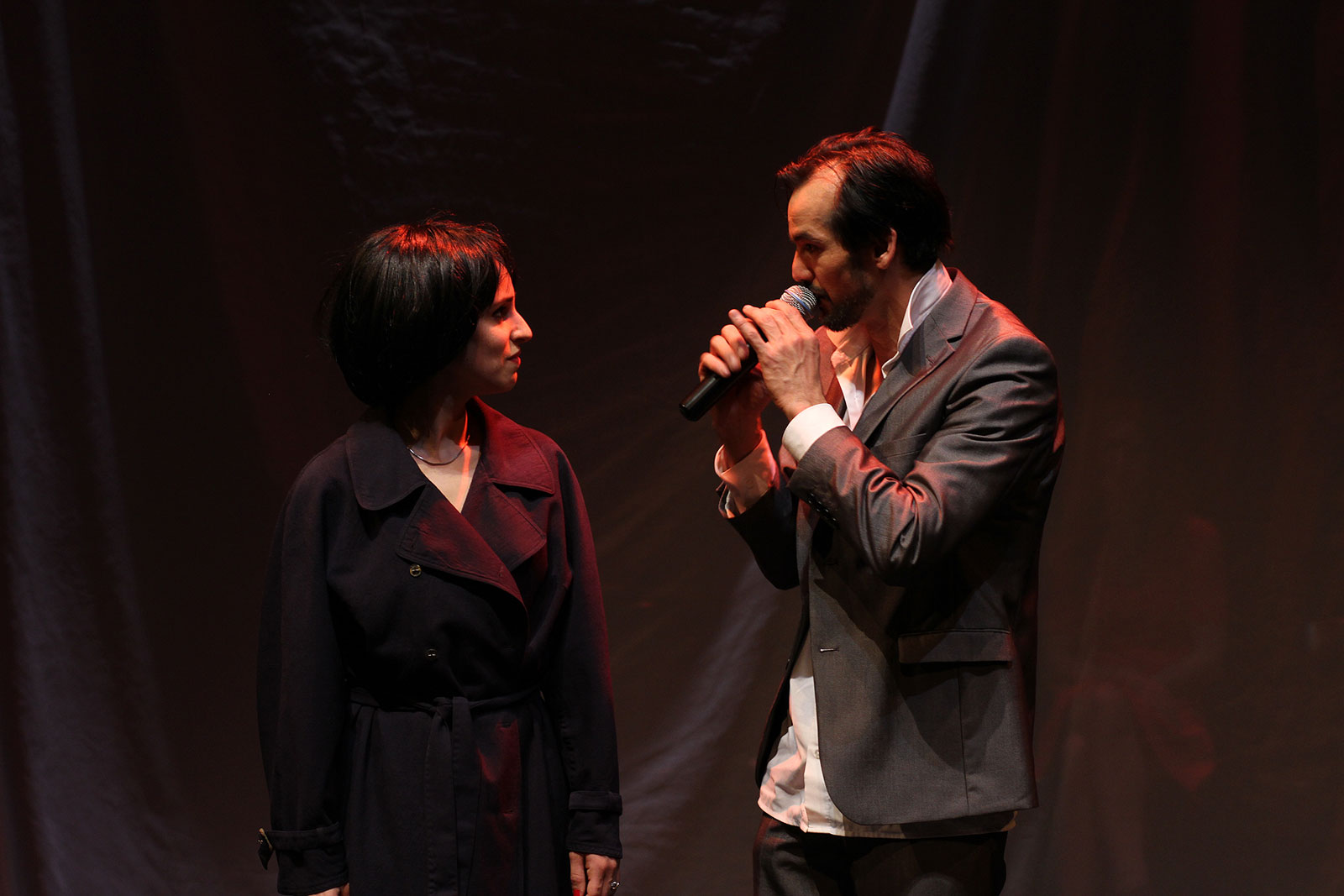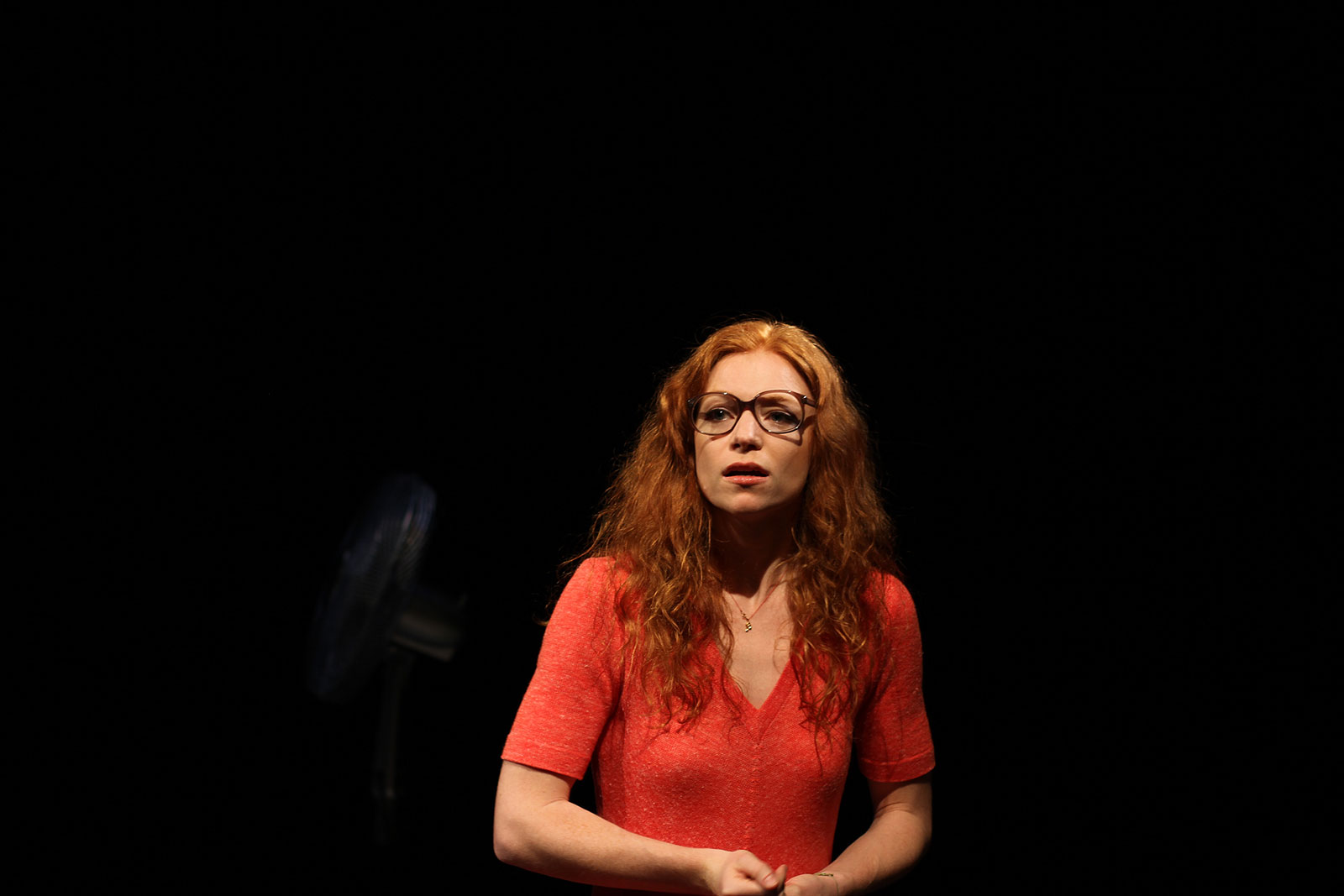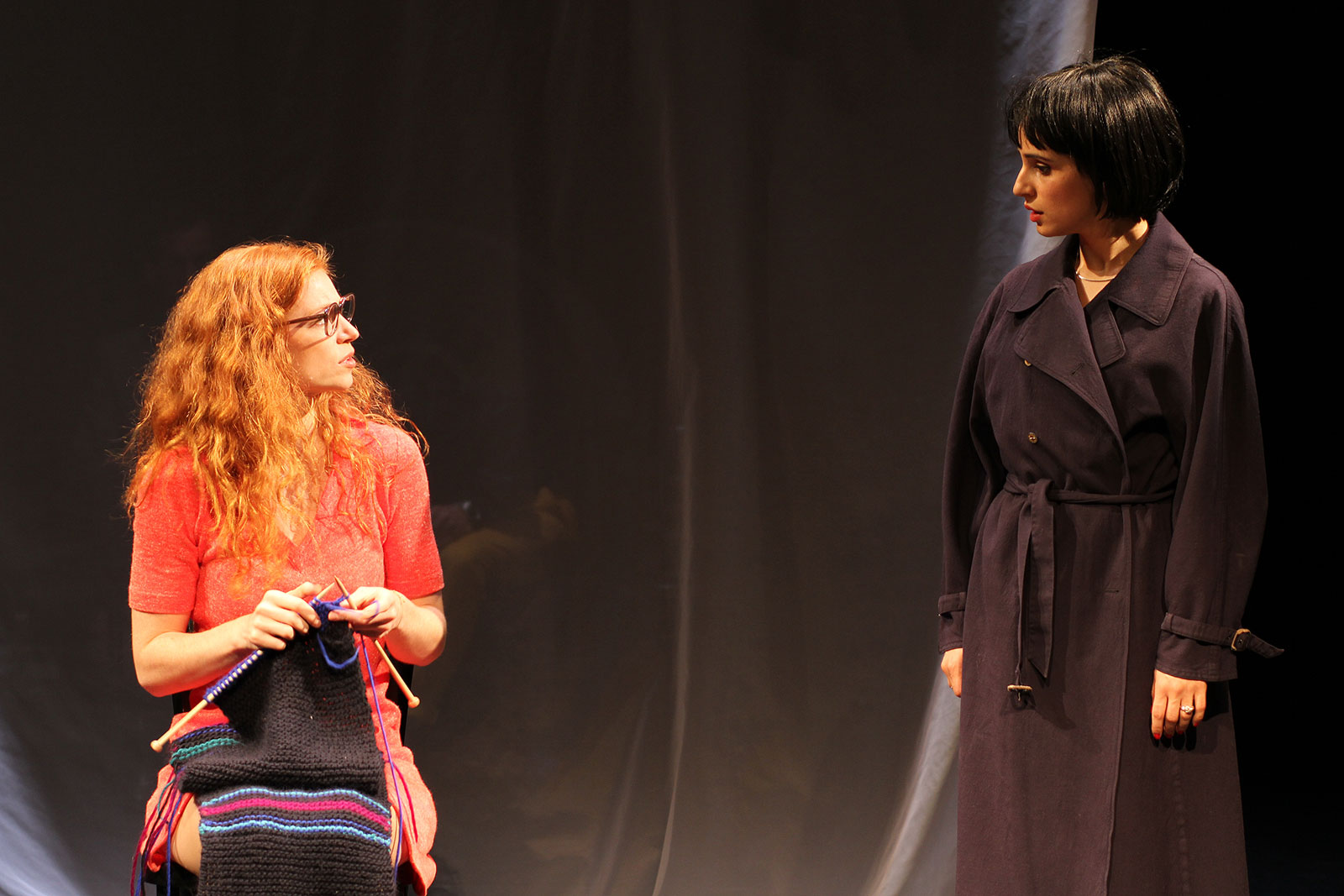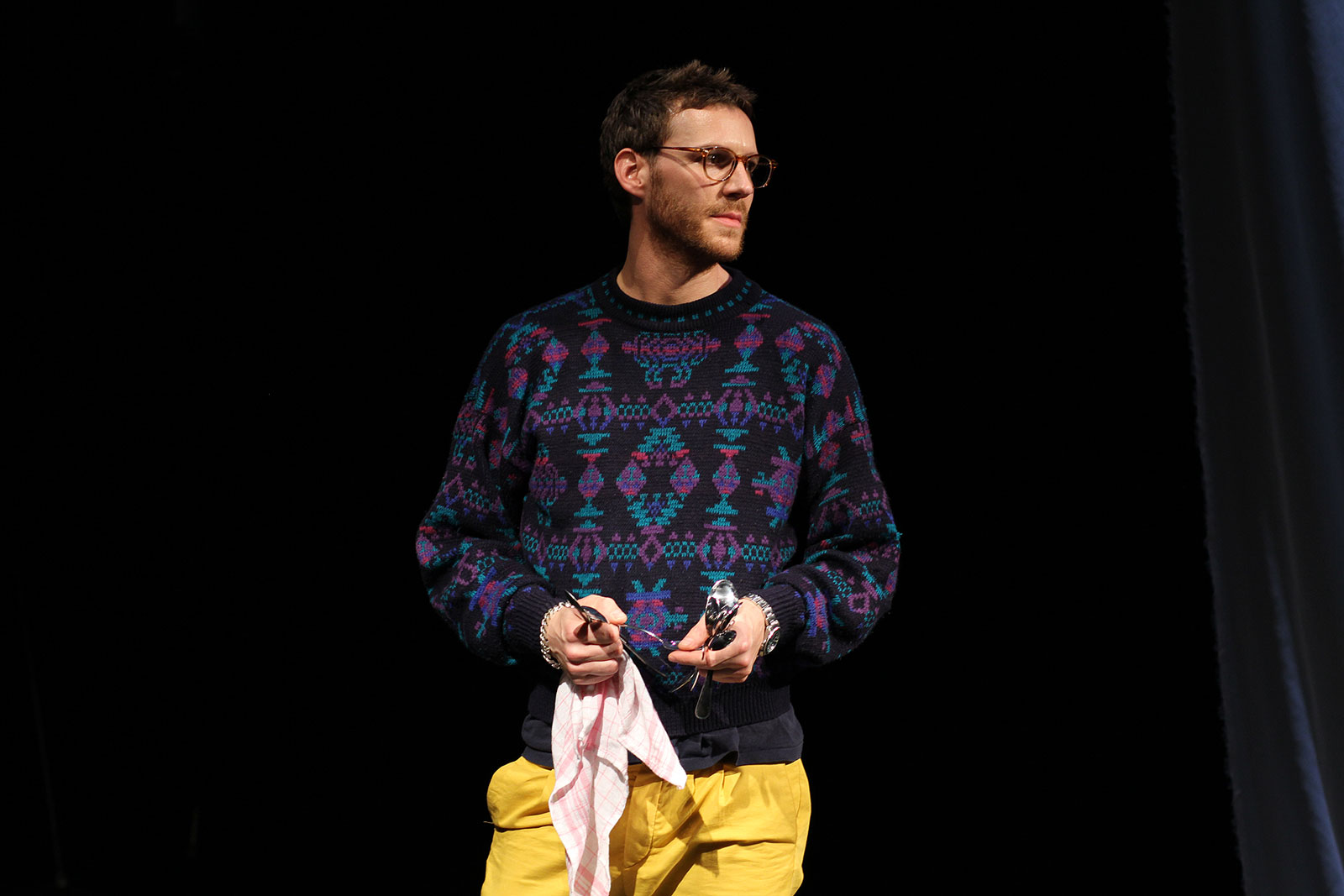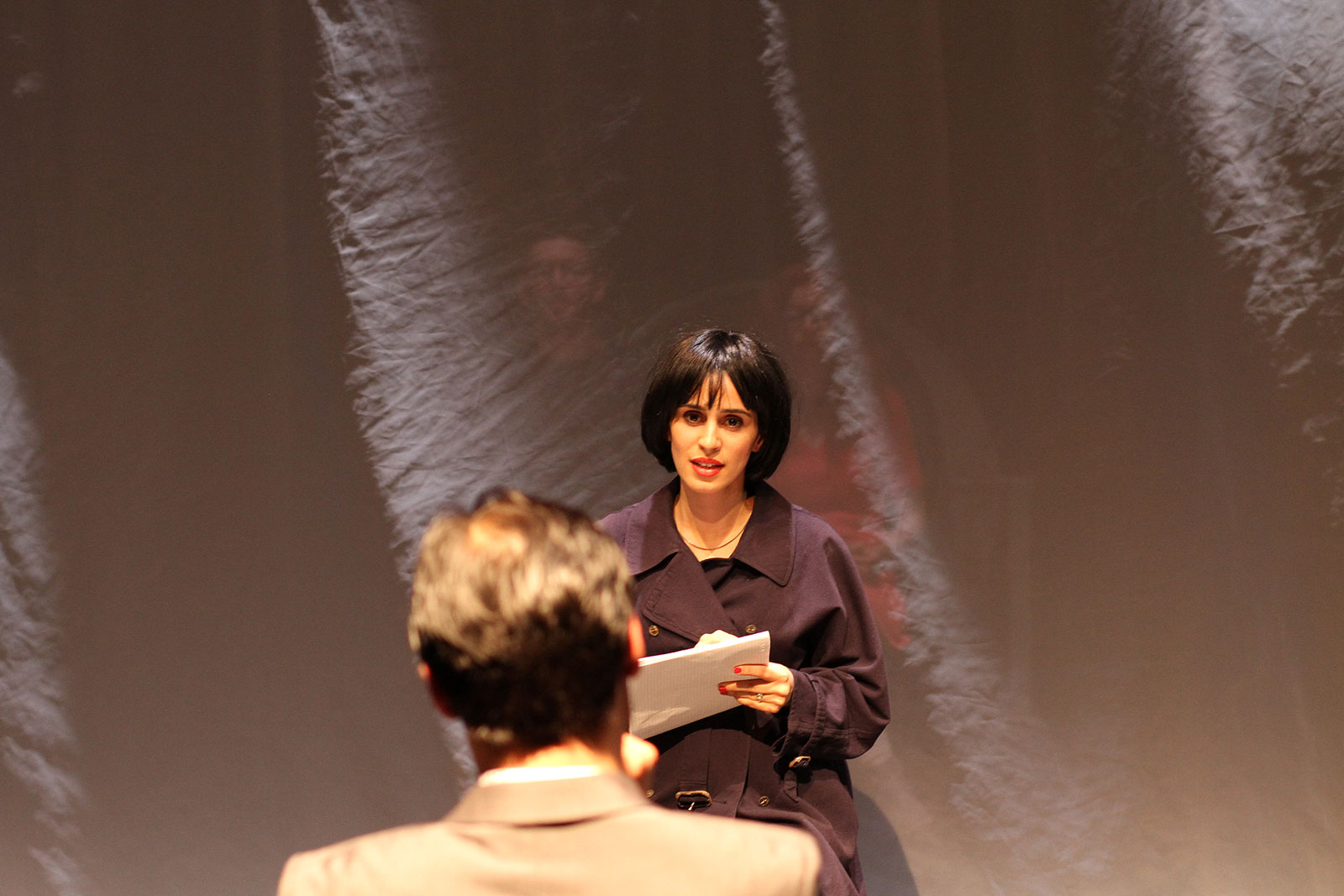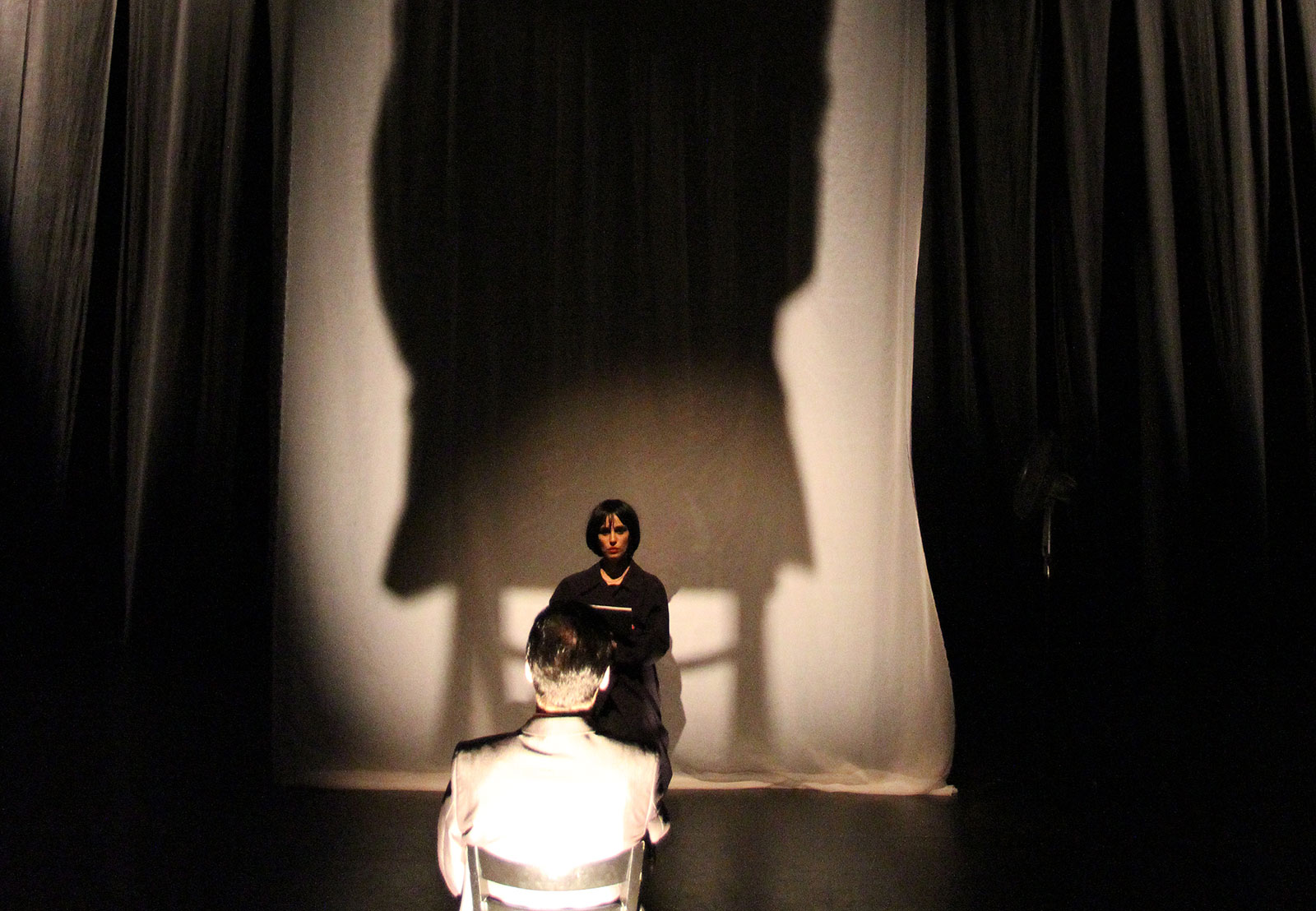Beg your pardon
1.
(In His office. There are bottles of water with his face on them on the conference table. He is
a well-dressed man in his mid-fifties. We can’t see Him; he’s sitting with his back to us. Thea
is sitting opposite him, with the table hiding her belly. On a large screen behind Thea, we see
his face. It’s like a TV debate. He comes across as pretty damn friendly to start with. Thea
seems pretty damn shy.)
He: Our country’s problem is love.
Thea: Is it?
He: Have you ever noticed that?
Thea: Me? No. Not yet.
He: You’re an attractive woman. There’s no need to act the innocent.
Thea: What do you mean?
He: Has an admirer ever got too close to you?
Thea: You mean harassed me?
He: Yes.
Thea: Yes.
He: Well, there we have it.
Thea: What do we have?
He: That’s the problem. That’s our people’s problem. We’ve commissioned studies. We
wanted to know. What is our people? Warts and all. Not only the good sides, everyone knows
them – loyalty, free spirit – we wanted the dark sides too. You see, we have to learn where to
draw the boundaries. Up to now, the government’s been holding a very vague debate. That led
to confusion. That led to unnecessary questions, even to scandals, because none of us
politicians knew exactly what we were talking about. We hope things will get clearer with us
in parliament. Because we have the courage to address the issues in clear terms.
Thea: And what does that have to do with love?
He: Love? Oh yes. Obsessive love. The love I mean is a sick kind of love that turns into
molestation. Harms other people. Mentally and physically.
Thea: And that is…?
He: That’s the disease in our society. Our distinctive trait.
Thea: I don’t understand.
He: We’ve researched into how our people’s violence expresses itself. We have to take a
clear stand against it. Even our people has its weak points. We have to be open about that.
And the trait that characterises us is an obsessive drive for stalking.
Thea: Stalking.
He: Tailing lost loves. Unrequited passions.
Thea: That’s our problem?
He: Our weak spot. Yes.
Thea: And you’ve researched that in conjunction with –
He: It’s all about violence. How does violence come about? What form of violence is distinct
to us? And what form is characteristic of the others.
Thea: I see.
He: Our form of violence is the sexual kind.
Thea: I’m not quite sure I understand. I asked you about the naturalisation test.
He: But you do understand what I mean?
Thea: What’s the specific motivation behind the introduction of the new naturalisation test?
He: Do you drive a car?
Thea: Do I drive a car?
He: Yes. Have you got a driving licence?
Thea: Yes.
He: That’s exactly the same. It’s just like with your driving licence. We can’t just give it to
you automatically because you turn up at driving school. A car is a deadly weapon. A tool
that you use, and you’re automatically a threat to others as soon as you use it in public. You
can’t just get in the car and drive off – a driving school would be closed down on the spot if
they did something as irresponsible as that. First of all you have to learn where everything is
and what rules apply and then you get the key. It’s all very simple. And it’s the same with the
naturalisation test. People want to come here. They don’t know the rules. They don’t know
the vehicle, they don’t know the construction year, how to open the bonnet, whether to fill it up with petrol or diesel. There’s a good chance the car will end up crashed against a brick
wall, if it even moves from the spot. And if it hasn’t run anyone over beforehand. So that’s
why we make laws. What we ask is that everyone who wants to come to our country knows
about what he’s making demands of. There are some who say most ordinary local people
wouldn’t even pass the test. There have been practice runs. A few newspapers had a bit of fun getting countrymen to take the test, and the results were always the same: it’s impossible to pass the naturalisation test. It’s inhumane. And the people who back it are too. They instantly cry discrimination or even racism. But the actual conclusion we ought to be drawing is very different – that our citizens are educationally impoverished. We have to look to the schools, the kindergartens, training centres. But instead we content ourselves with not knowing things and not wanting to know them, and we take that as justification for the abuse and vilification of the laws of the land, laws that could secure our country’s stability in the long term. You see, I got my driving licence more than twenty years ago. I can’t remember everything I learned. I don’t understand some of the rules and don’t ask me what to do if the fan belt breaks. To be honest, I’m the kind of driver who ought to be taken off the roads. I’m a dangerous driver. A risk to the general public.
Thea: So this test, then. I certainly wouldn’t pass it.
He: Have you tried it?
Thea: No. I looked at some of the questions. But –
He: You’re not serious. You can’t argue on that basis.
Thea: I’m not arguing, what I’m trying to say is –
He: Take the test. Find out what you don’t know yet and then go to the library. Or go to
evening classes and learn it all.
Thea: Have you done that too?
He: What?
Thea: Have you handed back your driving licence?
He: I don’t have to hand it back. You don’t have to hand back your citizenship. You have to
work for it. Fight for it.
Thea: Earn it.
He: Exactly.
Thea: I don’t know if there’d be much point for me.
He: You see, women’s problem us that they think modesty is attractive.
Thea: Beg your pardon?
He: As a woman, you think fishing for compliments makes you more interesting. No doubt
you expect me to give you a pat on the head and encourage you not to think so poorly of
yourself. But actually you could just take the naturalisation test, find out you’re much cleverer
than you think, and boast about it to me. That would be much more becoming.
Thea: What would be more becoming?
He: Acknowledging how clever you are.
Thea: You have no idea how clever I am or not.
He: Oh please, you’ve been bombarding me with questions on my party’s immigration policy
for the past half hour.
Thea: Bombarding you?
He: Yes, indirectly. You’ve opted for a defensive strategy and you think if you let me do the
talking I’m bound to let something slip that you can use for your study. Something I haven’t
even noticed myself. The Chinese approach.
Thea: What is the Chinese approach?
He: I bet if I tell you this it’ll come out wrong, I’ll have attacked Chinese immigrants in an
offside remark. But just so you know – let’s do something for your all-round education – the
Chinese always wait for their opponent to take action and then they react. They’re never the
first to attack. They sit on the riverbank and watch the water carrying their enemies’ corpses
past them. An old Chinese saying.
Thea: So that would make you my corpse?
He: What is it you really want? Be a bit more specific. To judge by your choice of words,
you’ve read articles about me in the press recently, because you knew we’d be meeting, but
you usually only read the Arts pages. You’re hiding what you really want to say to me
because you think I’ll put an end to the meeting if you say it out loud. But maybe you should
just go ahead and say it.
Thea: What I’m thinking?
He: Yes.
Thea: What I’m thinking about you?
He: About me, about my party. Our policies. It’s all about the new legislation we’re passing
in the light of recent events, which makes us look like monsters. Everyone’s politely
indignant and pleased to have a bad guy to do the dirty work, to tighten our belts, so that they
can get indignant about it. People love getting indignant. But still the People’s Party is more
successful than ever before in this country. Nobody says it out loud but everybody’s thinking
it. So just go ahead. It’d be very becoming.
Thea: What I’m thinking.
He: Are you thinking anything?
Thea: Yes.
He: And what?
Thea: I don’t think you want to hear it.
He: Is that your false modesty again, not wanting to say it?
Thea: You won’t like it.
He: Don’t worry, I’m fairly sure of that.
Thea: I’m thinking about your skin.
He: Pardon?
Thea: Your skin. I’m thinking about your skin.
He: My skin?
Thea: I think you’ve got such lovely, immaculate skin – I noticed it when we shook hands,
that your skin’s – And now I’m looking at your face and it’s so – firm. Much firmer than
mine. You seem almost unhuman to me. There’s not enough sun in the whole of this country
for you to be as radiant as you are, but your slight tan’s not from a sunbed, you’d see that. I
use two different creams every day, one in the morning and one at night, but you, you’re
really radiant. You’ve got such smooth skin. Doesn’t it feel tight? Is it a facelift? Have you
had a facelift?
He: Have I had what?
Thea: An operation. To make you look younger. Because I’m really a good few years
younger than you are, but it’s giving me a complex sitting here looking at you.
He: Because of my skin.
Thea: And because of your smile. Do you practice? I know you won’t answer that question,
but if you want to know what I’ve been thinking for the past half hour, it’s what it must have
looked like when you practiced your smile in front of the mirror so often that you’ve got it
down pat now. You can’t get rid of it, that smile. Even now, while I’m saying all this, you’re
still smiling.
He: Really?
Thea: What kind of cream do you use?
He: I smile too much for your taste.
Thea: Not too much. I just find it impressive. I find you impressive. You’ve been sitting here
for half an hour with a young woman who’s very carefully chosen her neckline for this
interview with the representative of the People’s Party, and you’ve been staring absolutely
unabashedly at my breasts, which have really got quite big, and I feel like you’ve been
touching them up with your eyes.
He: I beg your pardon? Excuse me, I think you’ve got the wrong idea –
Thea: I’d like to touch your face. Would you mind? I’ll be honest. I’ve been staring at your
face like you’ve been ogling my breasts. Can I touch your face? It won’t let go of me all day,
you see, I’ll be awake all night long wondering if it feels like plastic or not.
Translated by Imogen Taylor
